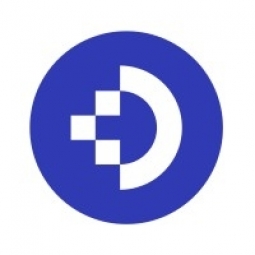Customer Company Size
Mid-size Company
Region
- Europe
Country
- Serbia
Product
- DocuWare
Tech Stack
- Internet Server
- Active Import
- Autoindex
- Recognition
Implementation Scale
- Enterprise-wide Deployment
Impact Metrics
- Productivity Improvements
- Cost Savings
Technology Category
- Application Infrastructure & Middleware - Data Exchange & Integration
Applicable Industries
- Telecommunications
Applicable Functions
- Business Operation
Use Cases
- Process Control & Optimization
- Real-Time Location System (RTLS)
Services
- System Integration
About The Customer
The KONSING GROUP Ltd is a star in the Serbian telecommunication and IP technologies industry that began in the 90s and is now known as one of the largest corporations in Serbia and the neighboring countries. Konsing started out in telephone paging systems and became a major provider of mobile telephony, wireless communications, IT, transmission and radio systems, intelligent buildings, power supply systems and also, commercial interior design and lighting protections systems. Their customers range from Telecom Serbia to Tel Montenegro, Aria in Turkey, Bulgarian Telecommunications Company, Aliatel in the Czech Republic or Telebeskid in Poland. The KONSING GROUP Ltd headquarters occupies their own two buildings, a space of 5470 square meters in the heart of Belgrade, with a total of 300 employees of which 100 are off-site engineers.
The Challenge
Before the implementation of DocuWare in 2008, all documents related to the entire workflow process of projects at KONSING GROUP Ltd had to go through a long and tedious process. Documents were sent in by mail, scanned, and distributed via email to five different departments. An equal amount of documents were physically transported from one office to another. With more than 5000 documents a month, it was necessary to have several administration officers handle the distribution and filing of all incoming mail. The documents ranged from inquiries on possible installations, to plans on installations or construction, contracts, financial correspondence, and invoices. The management at KONSING GROUP Ltd wanted a solution to their paper filing and workflow process. They wanted faster delivery and remittance of documents especially before and after a contract was signed.
The Solution
The solution was the implementation of DocuWare. Certain documents such as construction plans or performa invoices are now able to be amended by only the engineer or finance department or vice versa. Read-only rights were given to most. All invoices and purchase orders have a barcode label applied with a code that applies to a specific type of document. That way any documents can immediately be identified. Part of the bar code number also identifies the customer. Another part holds information as to when the contract was signed. The employees in five different departments now file the contracts and construction plans, invoices and e-mail messages pertaining to their customers in one document pool. Even the mail that used to be delivered by foot from one department to another is now available in a couple of clicks.
Operational Impact
Quantitative Benefit

Case Study missing?
Start adding your own!
Register with your work email and create a new case study profile for your business.
Related Case Studies.

Case Study
Vodafone Hosted On AWS
Vodafone found that traffic for the applications peak during the four-month period when the international cricket season is at its height in Australia. During the 2011/2012 cricket season, 700,000 consumers downloaded the Cricket Live Australia application. Vodafone needed to be able to meet customer demand, but didn’t want to invest in additional resources that would be underutilized during cricket’s off-season.

Case Study
SKT, Construction of Smart Office Environment
SK T-Tower is the headquarters of SK Telecom. Inside the building, different types of mobile devices, such as laptops, smartphones and tablets, are in use, and with the increase in WLAN traffic and the use of quality multimedia data, the volume of wireless data sees an explosive growth. Users want limitless Internet access in various places in addition to designated areas.











